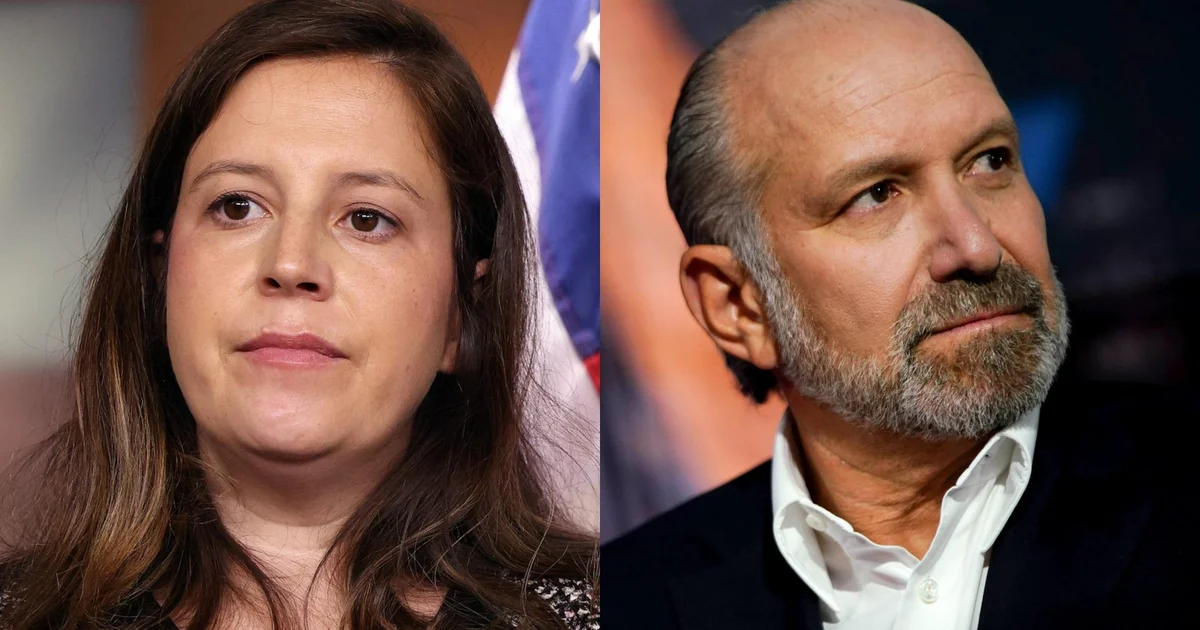CBS News
Will gold prices increase in 2025? Experts weigh in

Getty Images
The price of gold soared to all-time highs this year, hitting a record $2,790 per ounce in October. People have been flocking to the precious metal for protection against inflation and global market swings.
Recently, though, gold prices have pulled back. But many investors still see this as an opportunity. In today’s economic climate, gold’s appeal lies in its role as a reliable store of value that can’t be printed or created at will.
As 2025 approaches, investors are watching gold closely. Economic shifts, political changes and global tensions could all impact its value in the coming months and experts see compelling evidence for different scenarios ahead.
See how much a gold investment could cost you here now.
Will gold prices increase in 2025?
Finance professionals see different possible paths for gold prices next year:
Yes, gold prices could tick back up in the new year
“With economic uncertainty, rising inflation and central banks maintaining interest in gold as a reserve seat, prices are likely to climb,” says Brandon Aversano, founder of The Alloy Market. When markets get shaky, he explains, investors turn to gold as a shield against volatility.
This flight to safety could gain momentum as U.S. policy shifts take shape. David Akrami, author of Gold and Silver Mastery, points to upcoming changes that might impact the dollar. These include new tariffs and pressure for lower interest rates. The stakes could rise even higher as some officials hint at moving away from the dollar as the world’s reserve currency. This would likely push gold prices up.
Adding to these economic factors, global tensions remain a wild card. Depending on what happens abroad, gold prices could spike or fall.
Get invested in gold before the price rises again.
But there’s always a chance it could hold steady or drop
Despite strong arguments for rising prices, gold may see headwinds in 2025. Recent developments on the global stage could cool the precious metal’s hot streak.
The economic picture could also shift against gold. “If central banks tighten up and push stronger monetary policies, we might see the U.S. dollar strengthen,” emphasizes Aversano. This could cause gold to become costly for foreign buyers and, thus, impact its demand. If inflation slows, he adds, “investors might focus [on] chasing higher returns with stocks or bonds.”
Gold investments to consider in 2025
Gold investments can help diversify your portfolio, regardless of where prices head in 2025. Many financial advisors suggest holding some gold as a hedge against inflation and market swings.
Akrami and Henry Yoshida, founder of Rocket Dollar, share three ways to invest in the precious metal next year:
Physical gold
If you want direct ownership, physical gold (e.g., gold bars and gold coins) offers complete control of your investment. While buying and selling comes with higher transaction costs, many investors value holding the actual metal. Some providers have gold IRA options with tax advantages through specialized depository partnerships.
Gold ETFs
Gold exchange-traded funds (ETFs) make it easy to buy and sell the precious metal through any brokerage account. Many are backed by real gold, giving you market exposure without storage hassles. “Preferably, investors should focus on gold-tracking ETFs to ensure pure exposure to the underlying asset,” Yoshida advises. Transaction costs stay low, making ETFs popular for new and experienced investors.
Gold mining stocks
Gold mining stocks come with company-specific risks. Unlike other gold investment options, their value depends on more than gold prices. “Not all mining stocks are the same, and some have better fundamentals than others,” Akrami cautions. Both experts recommend sticking to ETFs or physical gold unless you’re ready to research individual mining companies thoroughly.
The bottom line
Gold’s path in 2025 is uncertain, with global events and economic changes potentially pushing prices in either direction. Despite this, Aversano sees physical gold as a safe investment because its value doesn’t waver much with market changes. But he suggests ETFs as an accessible alternative for some investors depending on their goals.
Before gold investing, talk with a financial advisor about how gold fits your investment plan. They may help you start with a small allocation and choose an investment type that matches your risk appetite.
CBS News
Trump team responds to threats targeting Cabinet picks

Watch CBS News
Be the first to know
Get browser notifications for breaking news, live events, and exclusive reporting.
CBS News
FBI investigating threats targeting Trump picks

Watch CBS News
Be the first to know
Get browser notifications for breaking news, live events, and exclusive reporting.
CBS News
Do you need good credit to enroll in a debt forgiveness program?

Getty Images
Managing a growing amount of credit card debt can be a stressful challenge — but it’s one that millions of Americans deal with each day. After all, the cost of essentials has increased drastically over the last few years, and that has forced many people to rely on short-term borrowing options, like credit cards, to help cover their necessary purchases. As a result, the average cardholder owes nearly $8,000 on their credit cards, and with the average card rate sitting at an all-time high of over 23%, it doesn’t take long for what was once a manageable amount of credit card debt to become an overwhelming burden.
When that happens, the idea of debt forgiveness — also known as debt settlement — may offer a glimmer of hope. These programs, which are offered by debt relief companies, can help lower your credit card debt by negotiating with your creditors to settle your debts for less than the full amount owed, providing a way to regain financial stability. And, in many cases, pursuing this type of debt relief can result in paying 30% to 50% less than what you currently owe, which means you could get substantial relief from your high-rate debts by taking this route.
But if you’ve been considering a debt forgiveness program, you might be under the assumption that, like traditional loans and credit products, these programs require a good credit score for enrollment. But do you really need good credit to take advantage of what debt forgiveness can offer? Below, we’ll explain what borrowers need to know.
Compare the debt relief options available to you here.
Do you need good credit to enroll in a debt forgiveness program?
There are certain eligibility criteria that you must meet to take advantage of this type of debt relief, but in general, no — your credit score does not determine your eligibility for debt forgiveness programs. In fact, many participants in these programs are already struggling with poor credit due to missed payments, high debt utilization or accounts in collections. Debt settlement companies understand this reality and are structured to assist those who are in financial distress.
What matters more than your credit score is whether you meet the other specific requirements for enrollment. Most debt settlement programs require participants to have a minimum amount of unsecured debt, such as credit card debt, medical bills or personal loans. This threshold often starts at about $7,500, although it can vary by debt relief provider. You must also be able to demonstrate genuine financial hardship, meaning you’re unable to meet your current debt obligations. This could stem from a loss of income, unexpected expenses or other financial setbacks.
Not all debts qualify for settlement, either. Secured debts, such as mortgages or car loans, are typically excluded from these programs — so if you’re trying to enroll with mostly secured debts, you may not qualify. Participants must also be prepared to make consistent monthly payments into a dedicated account that will be used to negotiate settlements with creditors. So while a good credit score isn’t necessary, a willingness to commit to the process is essential.
Learn more about debt forgiveness and your other debt relief options today.
How will debt forgiveness impact my credit score?
While a good credit score isn’t required as part of debt forgiveness, participating in a debt forgiveness program can have a significant impact on your credit score, so it’s important to weigh this consequence carefully. Enrolling in such a program may cause your credit score to drop initially. This happens because most debt settlement strategies involve stopping payments to creditors while the negotiations take place. As missed payments accumulate, your credit report will reflect delinquencies, which can lower your score.
When a settlement is reached, your creditor will typically report the debt as “settled” rather than “paid in full.” While this is better than leaving the debt unpaid, it’s still considered a negative mark on your credit report. Settled accounts can remain on your credit history for up to seven years, signaling to future lenders that you did not fulfill the original terms of your debt.
Despite these initial setbacks, debt settlement can pave the way for long-term financial recovery. Successfully resolving your debts reduces your overall debt burden, which can improve your debt-to-income ratio. Over time, as you rebuild positive credit habits, such as making on-time payments and keeping credit utilization low, your credit score can recover and even improve. The key, however, is to approach debt settlement as part of a larger financial strategy, not a quick fix.
The bottom line
While you don’t need good credit to enroll in a debt forgiveness program, you do need to understand the trade-offs. These programs are tools to help you regain control of your finances, but they come with short-term credit implications. If your primary goal is to resolve overwhelming debt and you’re willing to accept a temporary dip in your credit score, debt forgiveness may be worth considering.
Before committing to any program, take time to evaluate your financial situation, explore alternative solutions and consult with a reputable debt relief provider. By doing so, you can make an informed decision that aligns with your long-term financial goals.



